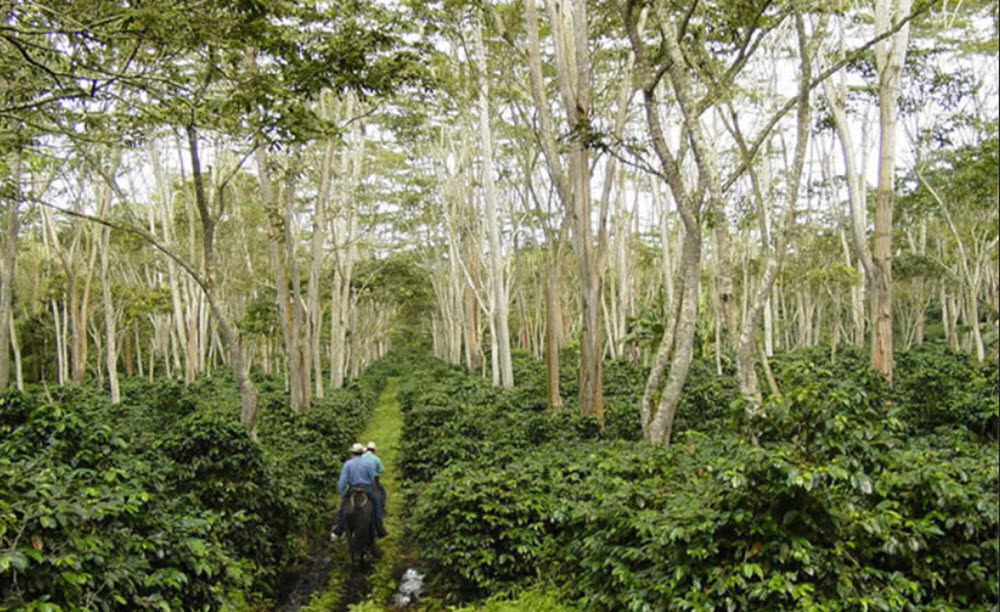BRUSSELS, October 3, 2024 – The implementation of the EU’s Regulation on Deforestation-free Products [ EUDR ] will be delayed, following lobbying from nations such as Indonesia and practical challenges progressing policies in an EU election year.
European Commission President, Ursula von der Leyen yesterday confirmed a one-year delay to the EUDR. It was originally due to start being enforced from December 30, 2024 for large businesses, and December 30, 2025 for micro and small businesses.
The Regulation, which passed into law in summer 2023, mandates that products derived from beef, cocoa, coffee, palm oil, natural rubber, soy or wood must be “deforestation-free” and legally produced to be placed on the EU market.
EUDR will replace the existing EU Timber Regulation. It defines “deforestation-free” products as those grown on land not deforested after 2020.
Compliance requirements would be placed on importing businesses plus those upstream, including manufacturers and retailers. Larger firms will need to evidence that their supply chains overseas are traceable and free from illegal deforestation. The mandate will expand over time to cover smaller firms.
The EU has faced mounting pressure to delay the implementation of EUDR.
Some national governments within the EU and some big businesses have argued that a delay is necessary to more clearly set out guidance for compliance. These resources have only been published this week.
Germany’s Chancellor Olaf Scholz, for example, made a formal call for a six-month delay in September.
Several producer nations of forest-risk commodities also dissented against the law. Indonesia, a major palm oil producer, continues to lobby the EU for measures which hold smallholder farmers to lower standards – at least initially.
Human Rights Watch’s senior environment researcher Luciana Tellez Chavez called the decision “a deplorable abdication of leadership in the face of a climate emergency” and said that the need for the law is “as pressing as ever” for climate, biodiversity and human rights reasons alike.
Chaves elaborated: “Decades of unfulfilled pledges show that without penalties for non-compliance and without binding rules to ensure a level playing field, companies will not — and arguably, cannot — do what it takes.”
Mighty Earth is similarly extremely disappointed. The group’s senior policy director Julian Oram said:”Delaying the EUDR is like throwing a fire extinguisher out of the window of a burning building. It’s an act of Nature vandalism that will serve only to drive more industrial destruction of tropical forests, threatening the people and wildlife who depend on them, while pushing climate and nature goals out of reach.”
Oram said the delay is partly attributable to policymakers bowing to pressure from corporate lobbying.
The FSC has, in contrast, stated that the delay “should not be seen as a reduction in commitment to this vital legislation” and urged companies already preparing to keep doing so.
A spokesperson said: “The world’s forests urgently need protection. We encourage companies to leverage FSC’s existing and upcoming solutions to complement their efforts in meeting EUDR obligations. FSC remains committed to guiding companies through the requirements, ensuring they are prepared for compliance when the EUDR comes into effect.”
In Uganda, the National Action Plan on the EUDR is on track, with the process to register coffee farmers ongoing. Uganda Coffee Development Authority [UCDA] is partnering with aBi and other partners to ensure that coffee value chain actors in the country comply with the EUDR.
According to UCDA, the country’s coffee exports in July 2024 amounted to 821,593 60kg bags worth US$ 210.48 million. This is the highest export figure in Uganda’s history. Coffee remains one of the leading foreign exchange earners, and exports for the last twelve months [August 2023-July 2024] totaled 6.3 million 60kg bags worth US$ 1.25 billion.
Buy your copy of thecooperator magazine from one of our country-wide vending points or an e-copy on emag.thecooperator.news
